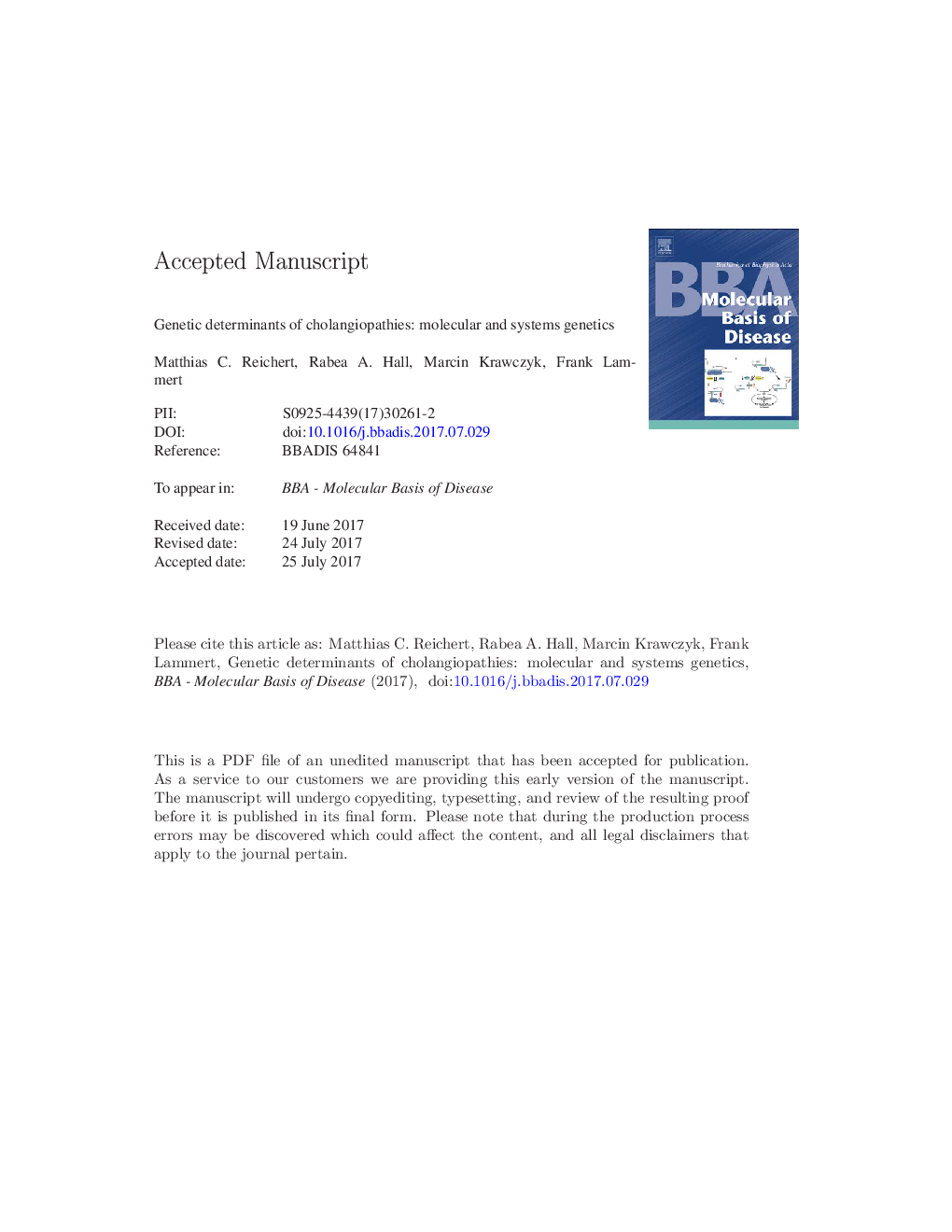| Article ID | Journal | Published Year | Pages | File Type |
|---|---|---|---|---|
| 8258541 | Biochimica et Biophysica Acta (BBA) - Molecular Basis of Disease | 2018 | 36 Pages |
Abstract
Familial cholangiopathies are rare but potentially severe diseases. Their spectrum ranges from fairly benign conditions as, for example, benign recurrent intrahepatic cholestasis to low-phospholipid associated cholelithiasis and progressive familial intrahepatic cholestasis (PFIC). Many cholangiopathies such as primary biliary cholangitis (PBC) or primary sclerosing cholangitis (PSC) affect first the bile ducts (“ascending pathophysiology”) but others, such as PFIC, start upstream in hepatocytes and cause progressive damage “descending” down the biliary tree and leading to end-stage liver disease. In recent years our understanding of cholestatic diseases has improved, since we have been able to pinpoint numerous disease-causing mutations that cause familial cholangiopathies. Accordingly, six PFIC subtypes (PFIC type 1-6) have now been defined. Given the availability of genotyping resources, these findings can be introduced in the diagnostic work-up of patients with peculiar cholestasis. In addition, functional studies have defined the pathophysiological consequences of some of the detected variants. Furthermore, ABCB4 variants do not only cause PFIC type 3 but confer an increased risk for chronic liver disease in general. In the near future these findings will serve to develop new therapeutic strategies for patients with liver diseases. Here we present the latest data on the genetic background of familial cholangiopathies and discuss their application in clinical practice for the differential diagnosis of cholestasis of unknown aetiology. As look in the future we present “system genetics” as a novel experimental tool for the study of cholangiopathies and disease-modifying genes. This article is part of a Special Issue entitled: Cholangiocytes in Health and Disease edited by Jesus Banales, Marco Marzioni, Nicholas LaRusso and Peter Jansen.
Keywords
BRICRILLPACUDCAPFICPBCGRPPSCICPHCCAsbtGenetic testDrug-induced liver injuryAlkaline phosphataseUrsodeoxycholic acidComplex diseaseRecombinant inbred linesDILIPrimary biliary cirrhosisquantitative trait locusGenome-wide association studiesGWASHepatocellular carcinomaCollaborative CrossPrimary sclerosing cholangitischolestasisIntrahepatic cholestasis of pregnancyBenign recurrent intrahepatic cholestasisProgressive familial intrahepatic cholestasis
Related Topics
Life Sciences
Biochemistry, Genetics and Molecular Biology
Ageing
Authors
Matthias C. Reichert, Rabea A. Hall, Marcin Krawczyk, Frank Lammert,
